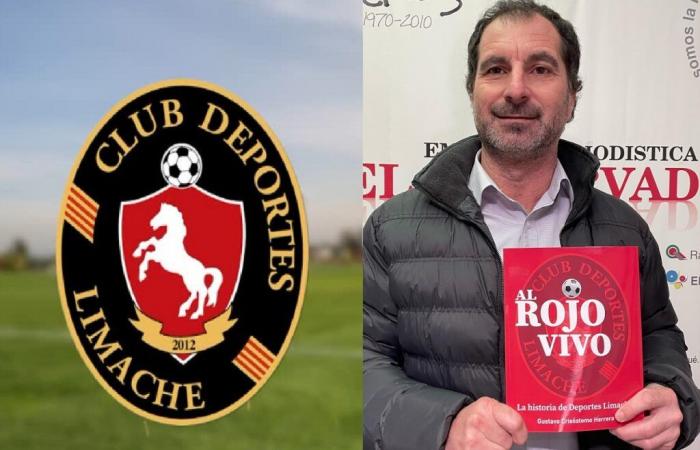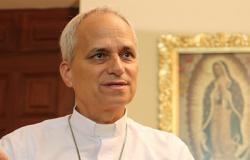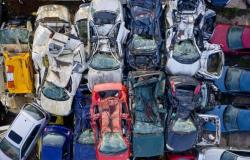“It is a piece of history that deserved to be told,” said the historian and writer, who focused his work on the meteoric rise of the Red Club from the third B to the first Division.
Limache.- For Gustavo Chrisóstomo Herrera, historian and Caleran writer, telling the story of a city through his football is not a novelty. It has seven published books, mostly dedicated to Unión La Calera and local sport. But his new work, focused on Limache sport, represents a different challenge: “There was absolutely nothing written about this club. There was a void, and when that happens, it is because there is a social need to count.”
The project was born a year and a half ago, when Crisóstomo set out to rebuild the origins of the team that today militates in the First Division of Chilean football, from its foundation in 2012 to the historic promotion in 2023. “It’s a young club, but with a story full of love for the city. More than love of football, it was a deep love for Limache,” he reflects.
In the book, the author not only traces sports achievements, but also the invisible effort of those who gave life to the club from scratch. “I met businessmen, technicians, players and leaders who left everything for this project. There were people who even neglected their businesses or families to keep the club alive.”
-One of the key sources was Aldo Torres, one of the founders, whom he contacted while he was in Mexico. “He answered me more excited than me,” he recalls. Another pillar was Rodolfo Eberlein, motorist and co -founder, who facilitated unpublished files and documentation.
The work also highlights figures such as Cristian Guerrero, present since the beginning of the club. “I spent the draft of the book and said: ‘There are things that I didn’t remember and you made me remember them,” says the author proudly.
EThe book will be presented next Wednesday, May 14 at 6:30 p.m. at the front of the Municipality of Limache, in an act open to the community. ANDThe mayor promised to distribute specimens in libraries and municipalized schools. “He understood that this was not a club or mine project, but of the whole city,” says Chrysostom.






